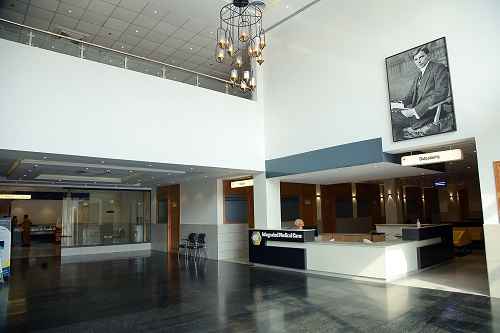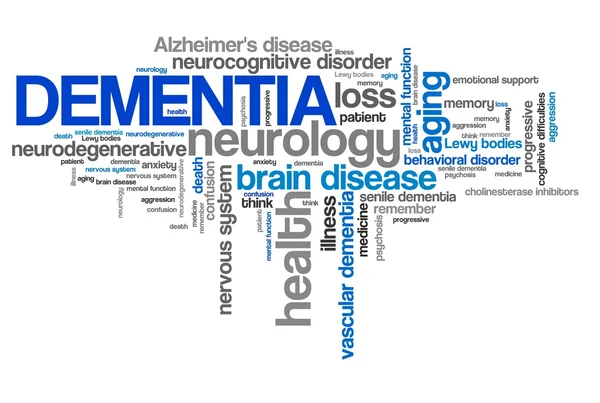- 26-Apr-23
Dementia is a broad term used to describe a group of symptoms that affect cognitive functioning including memory, thinking, and communication. It is a progressive neurological disorder that often occurs in older adults but can also affect younger individuals.
Dementia can be caused by various underlying conditions such as Alzheimer's, vascular dementia, Lewy body dementia, frontotemporal dementia, and others. The symptoms of dementia may include forgetfulness, difficulty with language and communication, confusion, disorientation, mood, and personality changes, and impaired reasoning and judgment.
As dementia progresses, individuals may experience difficulty with basic daily activities, such as dressing, grooming, and feeding themselves. There is currently no cure for dementia but there are treatments and strategies that can help manage its symptoms and improve quality of life for individuals and their caregivers.
Dementia Meaning in Urdu:
ڈیمنشیا- ایک اصطلاح ہے جو دماغ کو متاثر کرنے والی بیماریوں کے ایک گروپ کو بیان کرنے کے لیے استعمال ہوتی ہے۔ کچھ لوگوں کو اپنی بیماری کے شروع میں ہی یادداشت کی کمی کا سامنا کرنا پڑتا ہے، جبکہ دوسروں کو بہت بعد تک کوئی علامات محسوس نہیں ہوتی ہیں۔ رویے اور موڈ میں تبدیلیاں بھی عام ہیں۔ ڈیمنشیا کی سب سے عام شکل الزائمر کی بیماری ہے۔
Types of Dementia:
There are several types of dementia including:
- Alzheimer's: This is the most common type of dementia accounting for around 60-70% of all cases. Alzheimer's disease is characterized by the presence of plaques and tangles in the brain which lead to the death of brain cells.
- Vascular dementia: This type of dementia is caused by reduced blood flow to the brain which can occur as a result of strokes or other conditions that affect blood vessels in the brain.
- Lewy body dementia: This type of dementia is caused by the buildup of abnormal proteins (Lewy bodies) in the brain which can lead to problems with thinking, movement, and behavior.
- Frontotemporal dementia: This type of dementia is caused by damage to the frontal and/or temporal lobes of the brain which can lead to changes in behavior, personality and language.
- Mixed dementia: This is a combination of two or more types of dementia, most commonly Alzheimer's disease and vascular dementia.
- Parkinson's disease dementia: People with Parkinson's disease may develop dementia in the later stages of the disease.
- Creutzfeldt-Jakob disease: This is a rare, degenerative and fatal brain disorder that can cause dementia.
- Huntington's disease: This is a genetic disorder that can cause dementia, along with other movement and psychiatric symptoms.
There are other rare types of dementia as well and the specific symptoms and progression of the disease can vary depending on the underlying cause.
Dementia Stages:
Dementia is a progressive disease that typically advances through stages, although the exact progression can vary depending on the individual and the type of dementia. The general stages of dementia are:
- No cognitive decline: In this stage, the individual has no symptoms of dementia and is able to function normally.
- Very mild cognitive decline: The person may begin to notice minor memory lapses such as forgetting names or misplacing objects but these are often dismissed as normal aging.
- Mild cognitive decline: Symptoms become more noticeable and may include difficulty remembering recent events, difficulty with planning or organizing tasks and decreased concentration.
- Moderate cognitive decline: At this stage dementia is usually diagnosed. Symptoms may include confusion, difficulty with basic tasks such as dressing or bathing and problems with language.
- Moderately severe cognitive decline: Individuals at this stage require more assistance with daily activities and may experience significant memory loss, confusion and disorientation.
- Severe cognitive decline: In this stage, individuals may lose the ability to communicate coherently, may have difficulty walking or controlling their movements and may require 24-hour care.
- Very severe cognitive decline: The final stage of dementia is characterized by a complete loss of communication, a need for assistance with all activities of daily living and a high risk of complications such as infections or aspiration pneumonia.
It's important to note that not all individuals with dementia will progress through these stages in a linear fashion and some may experience different symptoms or a different rate of progression.
When to See a Doctor?
It's important to see a doctor as soon as possible if you or a loved one is experiencing symptoms of dementia. Dementia is a broad term used to describe a decline in mental ability that is severe enough to interfere with daily life. Symptoms may include memory loss, difficulty with language, problems with decision-making, changes in mood or behavior, and confusion.
Integrated Medical Care Hospital (IMC Hospital)
IMC Hospital is a reputable institution and regularly mentioned as one of Pakistan's top hospitals. IMC Hospital now has access to a pool of experienced, senior, and certified physicians with years of experience working at some of the most prominent and reputable medical facilities in the world, all under one roof. Visit the Integrated Medical Care Hospital (IMC Hospital) to make an appointment.

 Map
Map










